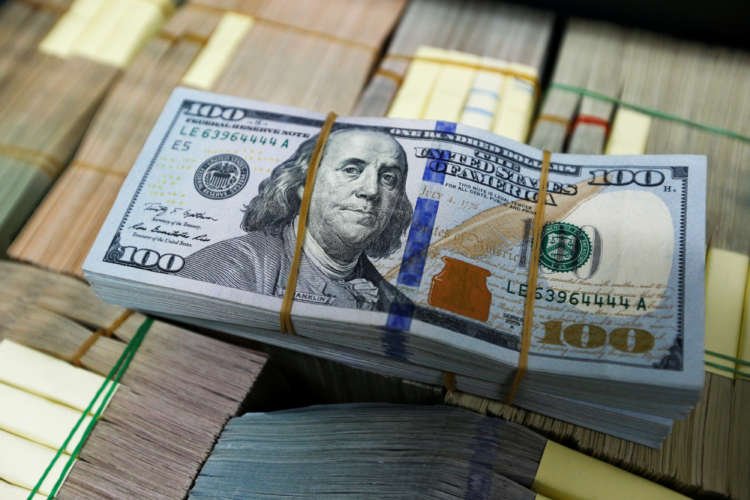Dollar stands stall as global stock rally fizzles
Published by linker 5
Posted on January 28, 2021
3 min readLast updated: January 21, 2026

Published by linker 5
Posted on January 28, 2021
3 min readLast updated: January 21, 2026

By Stanley White
TOKYO (Reuters) – The dollar extended gains against most currencies on Thursday as a stock market rout triggered by concerns about excessive valuations boosted safe-harbour demand for the U.S. currency.
The euro nursed losses after a European Central Bank member warned that interest rate cuts are possible to curb the common currency’s recent gains.
The Australian and New Zealand dollars, two currencies considered a barometer of risk appetite, also fell against their U.S. counterpart in a sign of waning market confidence.
Concerns about a short-squeeze among hedge funds, worries about corporate earnings, and delays in coronavirus vaccinations have slammed the brakes on a heady rally in global equities, which could continue to lift the dollar in the short term.
“Risk aversion supporting the dollar is a healthy correction after a one-way rise in risk assets,” said Masafumi Yamamoto, chief currency strategist at Mizuho Securities.
“The base scenario of economic acceleration in the second half of the year remains intact. The Aussie will recover but the euro will struggle.”
The dollar edged up to 104.27 yen following a 0.4% gain on Wednesday.
Against the euro, the dollar stood at $1.2094, close to a one-week high.
The British pound fell for a second consecutive session to $1.3673.
The dollar index stood at 90.742, holding onto a 0.6% gain on Wednesday.
Asian stocks were awash in a sea of red and futures pointed to a weak start to European trade on Thursday after U.S. stocks suffered their biggest one-day percentage drop in three months on Wednesday.
In addition to concerns about corporate earnings and the economic outlook, worries that hedge funds squeezed out of short positions in GameStop Corp and similar companies will take profits on other assets also fuelled risk aversion.
The U.S. Federal Reserve kept monetary policy unchanged as expected on Wednesday but did signal some concern about the pace of economic recovery, which some traders said is another negative factor.
U.S. gross domestic product data is due later on Thursday to gauge the strength of the world’s largest economy as it struggles with the coronavirus pandemic.
The onshore yuan briefly touched a one-week low of 6.4946 per dollar and other Asian currencies also fell against the dollar, highlighting strength in the greenback.
The Australian dollar fell to $0.7634, while the New Zealand dollar slid to $0.7135 as investors sold currencies with close ties to the global commodities trade to trim riskier positions.
========================================================
Currency bid prices at 2:20PM (0520 GMT)
Description RIC Last U.S. Close Pct Change YTD Pct High Bid Low Bid
Previous Change
Session
Euro/Dollar $1.2094 $1.2114 -0.16% -1.01% +1.2110 +1.2081
Dollar/Yen 104.2750 104.0900 +0.19% +0.97% +104.3650 +104.1500
Euro/Yen 126.12 126.07 +0.04% -0.63% +126.2400 +126.0000
Dollar/Swiss 0.8893 0.8889 +0.03% +0.51% +0.8904 +0.8889
Sterling/Dollar 1.3673 1.3692 -0.14% +0.08% +1.3692 +1.3651
Dollar/Canadian 1.2823 1.2806 +0.17% +0.74% +1.2835 +1.2800
Aussie/Dollar 0.7634 0.7664 -0.39% -0.77% +0.7666 +0.7621
NZ 0.7135 0.7159 -0.34% -0.64% +0.7161 +0.7131
Dollar/Dollar
All spots
Tokyo spots
Europe spots
Volatilities
Tokyo Forex market info from BOJ
(Reporting by Stanley White; Editing by Sam Holmes and Jacqueline Wong)
Explore more articles in the Top Stories category











